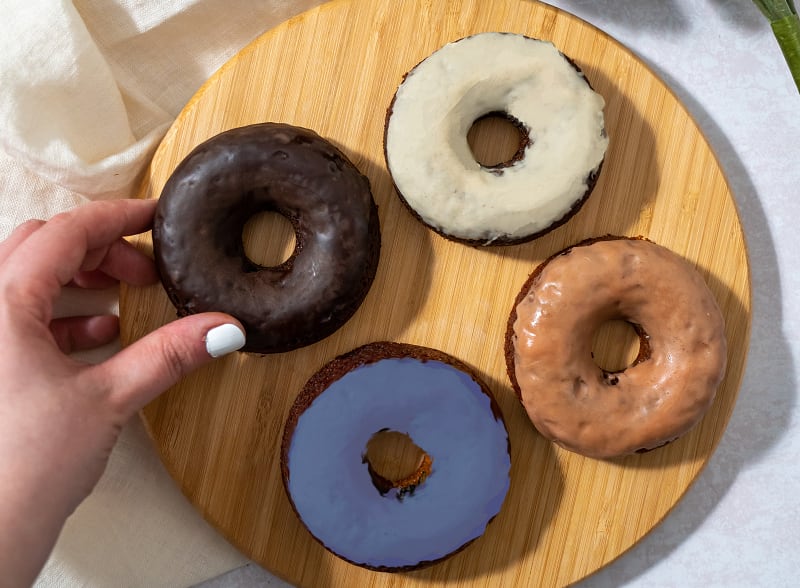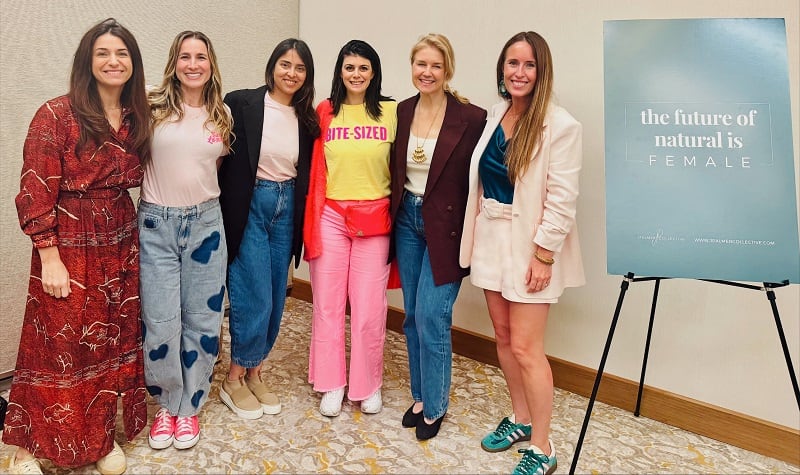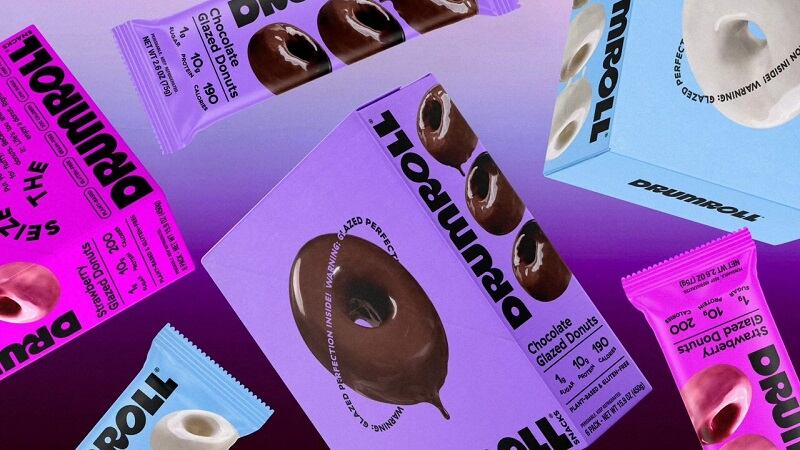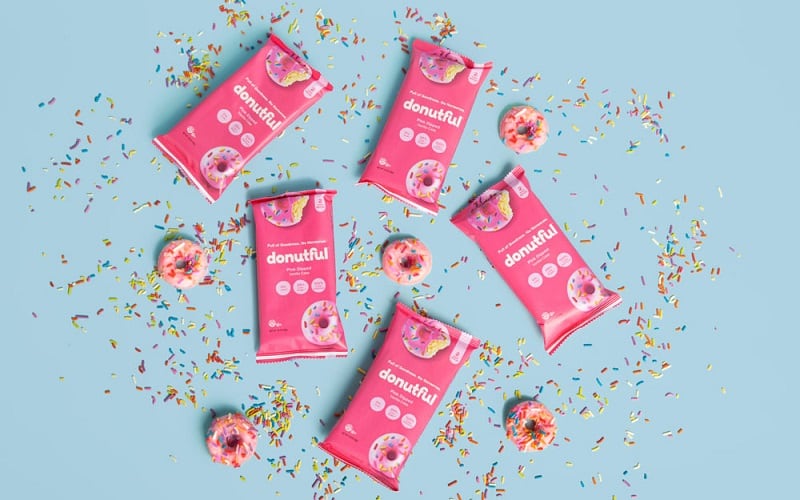Consumers seeking to satisfy their sweet tooth without the sugar crash and calories are turning to better-for-you baked goods – courtesy of brands like Planet Bake.
Started in 2020, Planet Bake offers zero-sugar and gluten-free donuts, available in dark chocolate, vanilla, blueberry and cinnamon and which contains 150-190 calories per donut.
Planet Bake taps into the permissible indulgence trend by formulating with allulose – a natural sweetener with a similar taste to sugar– brand Founder and CEO Kathrin Henon shared during her time backpacking Natural Products Expo West.
“We make nutrition-rich zero-sugar donuts. And what that really means is we use this sweetener called allulose, which has zero impact on the glycemic index, combined with all of our other ingredients where the research shows that they help regulate blood sugar, fight inflammation and all of the good stuff. So, we combine all of that and make it into a health-food donut,” Henon elaborated.
Allulose education is lacking
Allulose is opening new opportunities to develop zero-sugar products that closely resemble products with sugar. Additionally, the sweetener “does not really have that intense aftertaste that you get from a stevia or monk fruit,” Henon explained.
US-based Drumroll Snacks also uses allulose in its low-sugar donuts. Other better-for-you baked good brands like Deux and Donutful reduce sugar in their formulations but do not completely eliminate it.
FDA regulations allow allulose to be labeled differently on Nutrition Fact labels than other sugars since it impacts health differently and does not promote tooth decay or raise blood glucose or insulin levels like other sugars.
These changing regulations opened up an opportunity to educate consumers on allulose, with major CPG brands, including Kind and Chobani, now formulating with the sweetener, Henon pointed out.
“In 2020, the FDA decided to finally call it out for what it is on the ingredient label. In the Nutrition Facts, you had to call it out as allulose. It was not just buried in the carbohydrates. And this is really the year when people started using it,” she elaborated.
However, most consumers still do not know about allulose’s benefits, Henon noted. Planet Bake is filling the lack of allulose education with informative Instagram and social media posts, she added.
IFIC unpacks consumer perceptions on sweeteners
Consumers largely prefer brown sugar, honey and sucrose (table sugar) over sweeteners like allulose, according to an International Food Information Council (IFIC) report. When IFIC asked consumers to rate out of 10 how likely they were to try a sweetener (10 being most likely, and 0 being least likely), they gave allulose an average 3.5 rating, making it one of the top five least likely to try sweeteners.
Where will Planet Bake go next?
Planet Bake initially focused on growing its local New York market but now is bolstering its manufacturing capacity to expand on both US coasts, Henon said.
Direct-to-consumer options, like the brand’s website and Amazon and TikTok, remain crucial to driving brand awareness, she added.
“Direct to consumer is a really strong channel, and it is very important because you have to drive these customers essentially back to the retailers,” Henon said. “You really need to get the word out – the brand awareness – and let people know you exist before they even can go to the shelf.”
Like other CPG startups, Planet Bake is navigating a changing funding landscape, where venture capitalists (VC) ask more out of early-stage brands, Henon explained.
“The main challenge when you are growing a small business is, if demand grows, you need more cash behind to back it. When you are talking about VC, they are coming back, but they all upgraded their revenue level. So, let’s say they used to invest in $1 million. Now, they are investing at $5 million in revenues. So, there is a big shift.”





